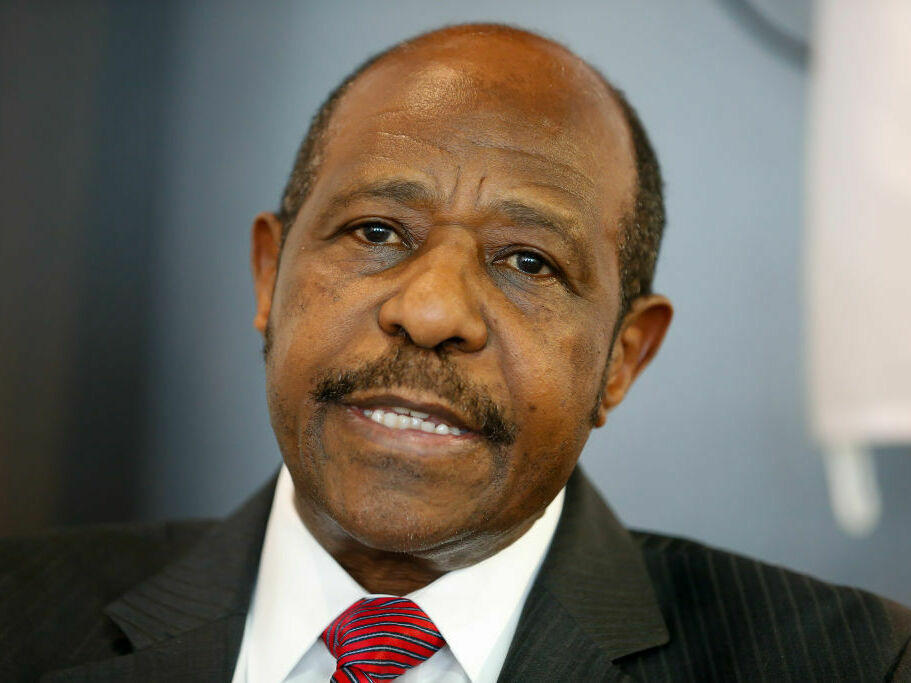Section Branding
Header Content
The man who inspired 'Hotel Rwanda' is still taking risks for his country
Primary Content
You're reading the Consider This newsletter, which unpacks one major news story each day. Subscribe here to get it delivered to your inbox, and listen to more from the Consider This podcast.
1. Paul Rusesabagina was a hotelier during the Rwandan genocide.
In 1994, the world watched as genocide unfolded in Rwanda. Nearly one million people died as neighbors brutally killed their neighbors. Paul Rusesabagina is credited for keeping more than 1,200 people safe in his hotel through weeks of violence. His life and story inspired the 2004 film Hotel Rwanda.
In 2021, Rusesabagina says he was kidnapped, tried and imprisoned in Rwanda for two years and seven months over his ties to the Rwanda Movement for Democratic Change (MRCD), a group that opposes President Paul Kagame's rule. He says he was able to talk to his family only once a week for five minutes.
"I talked about what happened in Rwanda from the beginning to the end... I became an enemy. That experience was just like finding oneself in a hell where you are tortured," he told NPR.
After intervention from the U.S. and other countries, Rusesabagina was eventually released from prison. At the time he was released, he says he electronically signed a letter promising not to criticize the government. Ultimately, he decided to disregard that promise, in order to be a voice to the voiceless: "So I cannot shut up since I have a mission."
2. Rusesabagina hasn't lived in Rwanda since 1996 but still speaks out about the government there, including President Kagame.
Many allies of President Kagame would argue that he has been responsible for shepherding an era of what they say is relative peace in the country. His critics say he leads an oppressive government that leaves no space for dissent. Rusesabagina sees two Rwandas: "You have the Rwanda for the elite, the capital city of Kigali, and the other Rwanda where people are dying, being buried because of hunger... Is that development?"
Rusesabagina's daughter Anaïse Kanimba says any development of the country has come at the cost of the freedom of the people.
"If people cannot speak freely, all this work cannot be sustainable. And I would also call these allies of Paul Kagame not to undermine the ability of Rwandans to be able to choose their own rulers and still live in safety," she told NPR.
"And we shouldn't believe that we need to have somebody like Kagame in order to be safe. And I think they're taking away the agency of the Rwandan people to make that choice for them."
3. Rusesabagina and Kanimba hope to return to Rwanda one day.
Rusesabagina believes that the country is poised to change, because of the desire of its citizens.
"The country is made by very active Rwandans who want to see a developed country, who want to bring the best to their country, who are working hard every single day. Our country can be better. And our people are there, and they're suffering today under the dictatorship or the authoritarian regime of Paul Kagame. But that doesn't mean that they cannot take ownership of their country and move it forward without this kind of leadership," he said.
Rusesabiga would like to go back to his home country, without the fear of being put in jail, but right now that's not possible.
"I believe that my brothers and sisters who are in Rwanda, my compatriots, will find a way to let everybody else outside come back one day."
NPR reached out to the Rwandan government for comment. A spokesperson sent the following statement, included here in full: "Rusesabagina lies consistently, he was never tortured. Everyone in Rwanda can say what they want, as long as it doesn't break the laws that govern all of us, and that keep Rwandans safe."
For sponsor-free episodes of Consider This, sign up for Consider This+ via Apple Podcasts or at plus.npr.org. Email us at considerthis@npr.org.

